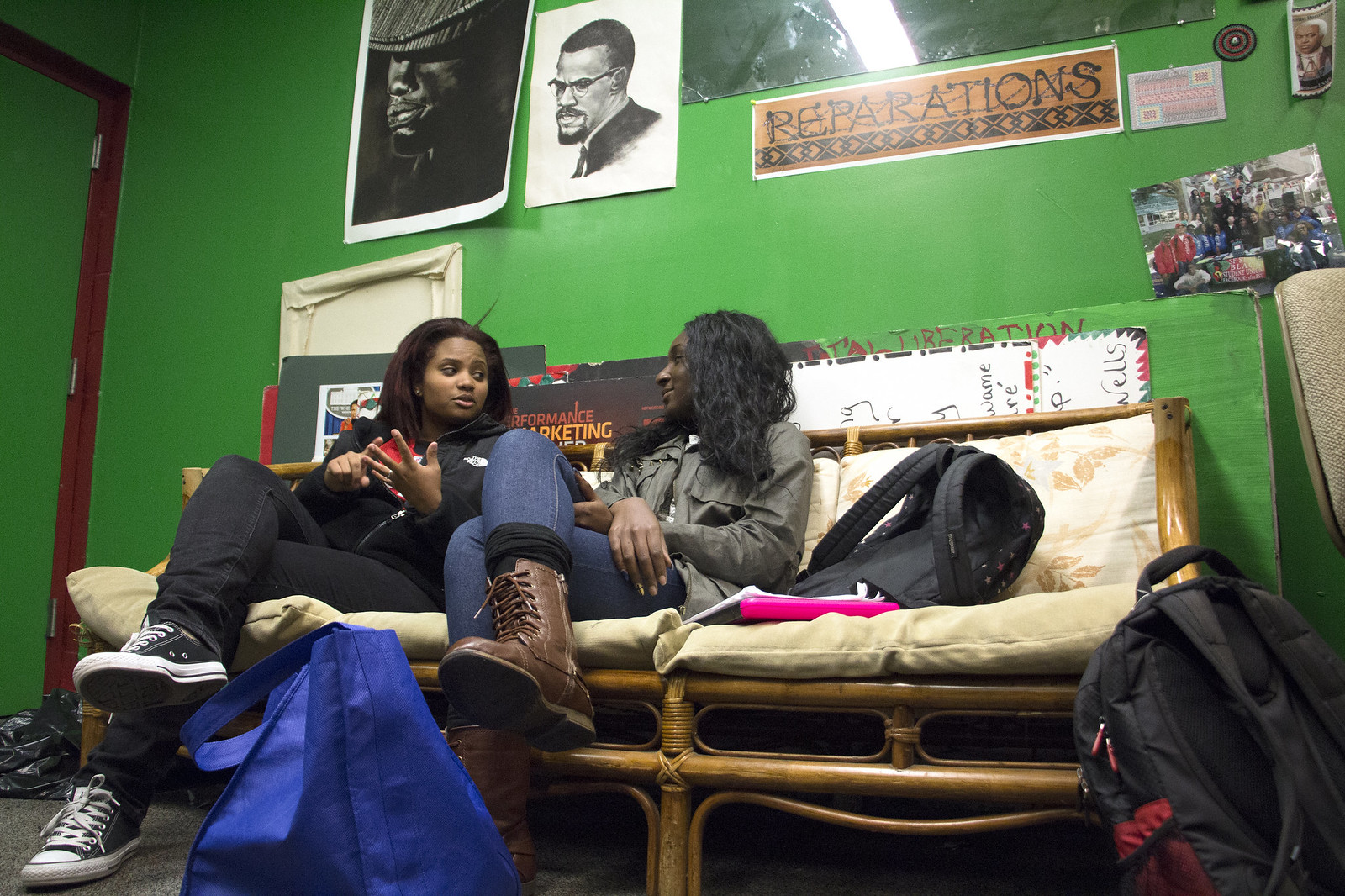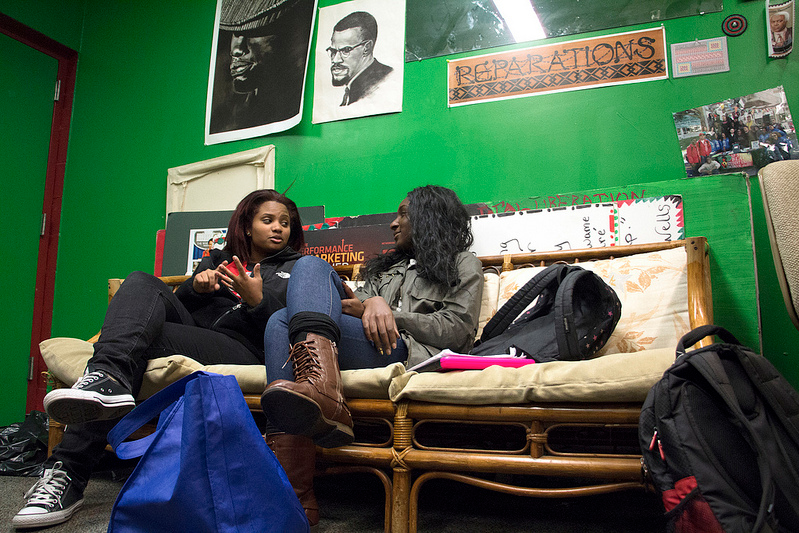
In the fourth floor gallery of the J. Paul Leonard Library, photos of police in riot gear hang as a reminder of the 1968 student strike that strengthened the Black Student Union (BSU) and created the first Ethnic Studies department at SF State.
Now, 45 years after the pictures were taken, the BSU remains a powerful entity at SF State. It continues to propel civil rights by spreading the organization to high schools both locally and around the world.
Serie McDougal, Africana studies professor and adviser to the BSU for four years, understands what it takes to form and maintain an organization. He founded a BSU chapter at his alma mater.
McDougal went to a small university in Dubuque, Iowa with around 30 black students, so he decided to get together and form their first BSU and advocate for black studies courses on their campus.
The organization travels to local high schools, like Galileo Academy of Science and Technology, formerly known as Galileo High School, to help maintain and organize their BSU. They also work with outside organizations like the 100 Percent College Prep Institute.
The institute, in Bayview-Hunters Point, is an organization that provides a supportive space for students from middle school through college to achieve academic, artistic and social goals, according to their website.
“How today’s youth sees things, is that it’s not important to be political or to have a voice in things. Things more universal are what’s popular instead of being aware or political about things… its kind of sad,” said Jason Murdock, member of the SF State BSU.
The first BSU was created at SF State in the Fall, 1966 by students Jimmy Garrett and Jerry Varnado. It was the first at any school in the nation.
In the 1960s, the BSU was at the forefront of many campus protests, such as the famous 1968 student strike, which began Nov. 6, 1968 and ended on March 21, 1969. SF State’s political atmosphere heated up when students demanded the removal of the Air Force ROTC program, which gave students’ class standing information to the selective service. The suspension of George Murray, professor and Black Panther member, set the strike into full swing. It was the longest student strike in the nation’s history.
Despite violent confrontations with police, a campus closure and a student detonating a bomb, the strikers refused to quit until an agreement was made with the faculty. A deal was made and the strike ended eventually and SF State’s Black Studies Department was born, now called the Africana Studies Department .
The BSU has not lost their political past and is still active in political issues on campus. They have recently entered the Taser discussion on campus, previously reported by Xpress.
“I feel to alleviate all the fear you (University Police) need to build a report with students on campus,” said Skky Foster, one of the coordinators for the BSU. “(University Police) being scared of us isn’t going to help you and using a Taser on us is still not going to help your situation, it’s just going to make people mad.”
With a membership of around 300 people, the BSU continues to grow and educate members on their past.
“I’m happy with the organization right now and I stay with BSU because it’s family,” said Foster.





